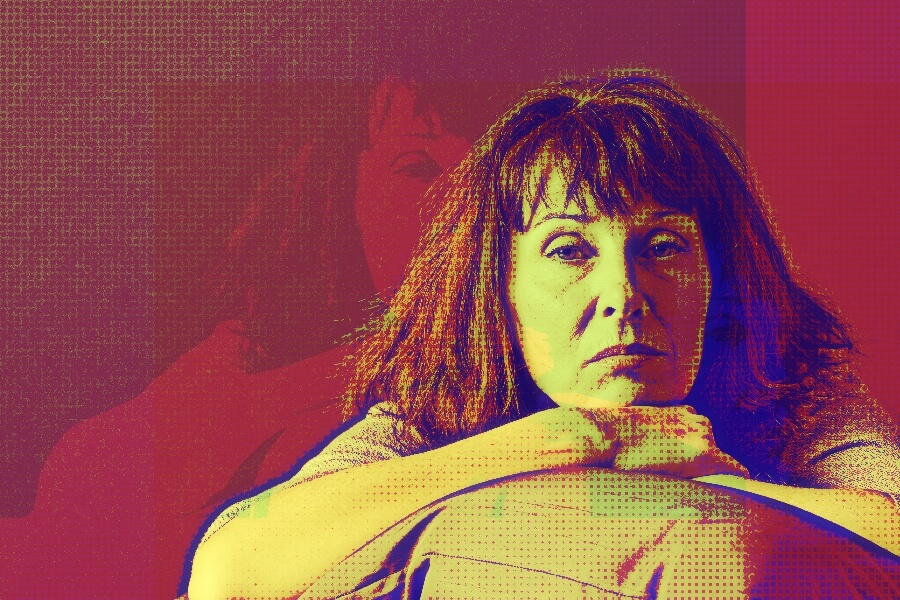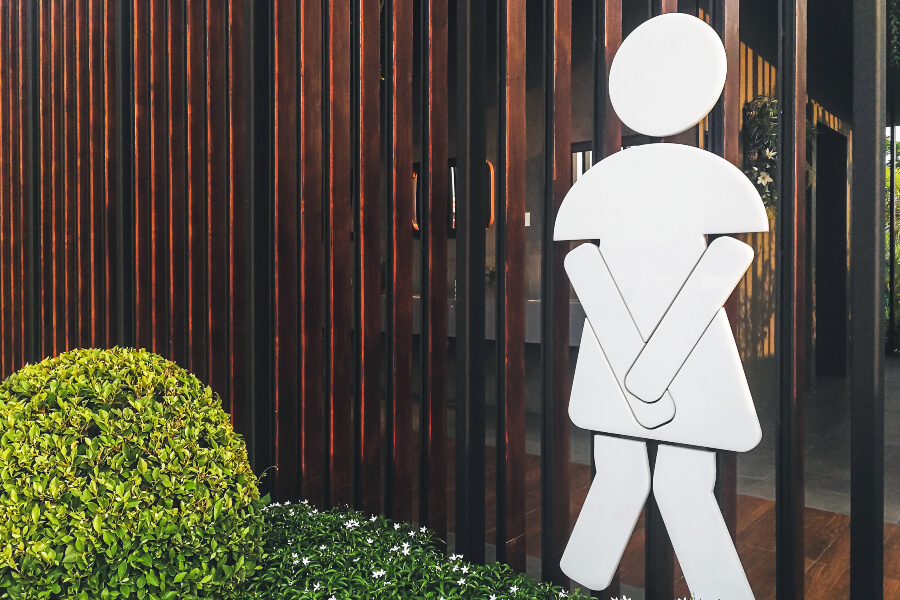“I still have it. There’s been a lot of weird neurological things that go along with it. Everytime I have a little twinge, I think, Oh no. Am I going to die in my sleep tonight,” Julia Barclay Morton, 57, says nine months after she first contracted COVID. “So not only am I dealing with a physical illness, I’m also dealing with this uncertainty.”
In one study, women afflicted by the longer-term effects of COVID outnumbered men by four to one.
Morton, who spoke at a NextTribe virtual event about the lessons of 2020, is what’s considered a long-haul COVID patient, someone who still hasn’t fully recovered from COVID-19 weeks or even months after symptoms first arose. Medical experts are stumped by many aspects of long-haul COVID, including the fact that women seem much more susceptible to this version of the illness that never really ends.
Research suggests that anywhere from 10 to 30 percent of people who contract COVID-19 will experience prolonged effects. Early reports of long-haul COVID at a Paris hospital between May and July 2020 suggested that women afflicted by the longer-term effects of COVID outnumbered men by four to one.
Read More: COVID Vaccine Side Effects Are Worse for Women. Here’s Why
The Symptoms
What’s more, middle-aged women have a higher risk of experiencing a range of debilitating ongoing symptoms, such as fatigue, breathlessness, muscle pain, anxiety, depression, and “brain fog” after hospital treatment for COVID, according to the British Medical Journal, citing the findings of two unpublished studies available as preprints.
“The fatigue was like nothing I ever experienced before,” Morton says of her symptoms. Some patients even report having hallucinations, delirium, short-term memory loss, or strange vibrating sensations when they touch surfaces, which could be an indication of alteration in the nervous system.
Seven in 10 patients admitted to the hospital with COVID reported long-haul symptoms an average of five months after discharge, and symptoms were more prevalent in women aged 40 to 60. White ethnicity, two or more pre-existing conditions at admission, and receiving invasive ventilation while in hospital increased the risk, but severity of acute COVID did not seem to affect the likelihood of experiencing long covid symptoms.
Long Haul COVID in Women
This is not a new phenomenon when it comes to infectious diseases. Researchers are already aware that women are up to four times more likely to get myalgic encephalomyelitis, or chronic fatigue syndrome, which is believed to originate from an infection. Sufferers of chronic Lyme disease are also significantly more likely to be female.
Signs of age-old gender biases have crept in over the past year with long COVID.
Some scientists have already begun to describe long Covid as an estrogen-associated autoimmune disease, calling for more research dedicated to identifying both personalised and gender-specific long Covid treatments, according to a recent report in the Guardian.
“In general, there’s not as much research money and attention on conditions that primarily affect women,” Julie Nusbaum, an assistant professor at NYU Long Island School of Medicine, told the Guardian. “That’s just a general disparity in medical research. I think certain biases persist that when women present with a lot of body aches or pains, there’s more often an emotional or personality component to it than medical origin.”
Medical Gaslighting?
The Guardian goes on to report that signs of these age-old biases have crept in over the past year with long COVID. There are anecdotal reports of female patients complaining that their persistent symptoms have been dismissed or attributed to anxiety.
Some female patients have complained that their persistent symptoms have been dismissed or attributed to anxiety.
“It feels like no one understands,” Chloe Kaplan of Washington D.C., who works in education and is on day 78 of COVID, told The Atlantic. “I don’t think people are aware of the middle ground, where it knocks you off your feet for weeks, and you neither die nor have a mild case.”
“I don’t buy it myself,” Dr. Janet Scott, an infectious diseases specialist at the University of Glasgow, told the Guardian. “I think it plays into the narrative of, ‘Don’t worry about long COVID, it’s just a bunch of hysterical, middle-aged women.’”
Of course, there is much about COVID that is mystifying, but that doesn’t mean unusual issues should be dismissed. “The symptoms are very real,” says Rachael Evans, a clinical scientist at the University of Leicester, who led a study about women and long-haul COVID. “But they don’t have a straightforward relationship with heart and lung damage, or certainly heart and lung damage can’t explain all the symptoms.”
Long-hauler patient support groups are also a great resource for advocacy and community-building. Survivor Corps, for example, mobilizes long haulers to support research and provides information on plasma donation, COVID-19 webinars, COVID survivor clinical trials, and more. For more personal connection, patients can also find support groups where long haulers discuss their experiences, like the Long COVID Facebook Support Group.
Read More: Gender Bias Much? Why High Blood Pressure is Often Misdiagnosed in Women





















0 Comments